
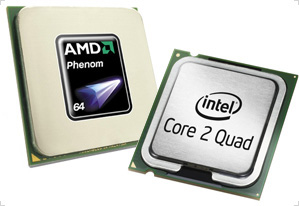
Don't Panic!
It's not as confusing as you think. After reading all our tips and tricks, you're going to have everything you need to make sure you choose the right CPU for you and your system.
The first thing you need to check if your upgrading your CPU is if your motherboard will support your CPU. With AMD it's easy - AM2 CPUs (Athlons) will work in all AM2 & AM2+ boards and all AM2+ CPUs (Phenoms) will work in all AM2+ boards. You can run AM2+ CPUs in some AM2 boards, but you'll need to check with the manufacturer before you buy it.
When it comes to Intel, all their current CPUs are the same socket (775) except the i7s. For the Core2, Pentium & Celeron range its all down to the Front Side Bus (FSB). This is the speed the processor communicates with the motherboard. The faster the FSB, the faster the CPU can perform. Current FSB speeds range from 800MHz to 1600MHz. Your board's FSB should be equal or greater than your CPU's FSB. For example, an 800MHz CPU will work on a 1600MHz board but not vise versa. Even if your older motherboard supports your new CPU's FSB, it might need a BIOS update. It's always best to check with the manufacturer to see if your older board will run it.
Like most items in your PC, buying a CPU is about balancing price & performance. Below we've compiled some benchmarks so you can see what's what. We have also broken our CPU scoring into 4 subcategories that will score each chip on a scale of one to five on its suitability the four categories; Office PC, Design PC, Home PC & Gaming PC. We've also included the benchmark results scored by each CPU running 3DMark to help gage their overall performance. The CPUs were tested with a standard set of components to ensure uniform results.
Things to look for in a new CPU...
- Speed: This is measured in GHz (gigahertz) and gives you an idea of the processor's overall speed.
- FSB: As explained above, this only really matters for Intel Chips. The faster the FSB, the faster the chip can communicate with the motherboard
- Cache: A form of "buffer" to help the CPU access memory. It's more important on Intel chips due to their lack of an on-board memory controller.
- Number of Cores: The more cores a CPU has the better it will be at multitasking and running heavy programs. Not everything will use a quad to its full potential due to limited support, however they're certainly the way forward for power users. Most quads are now powerful and advanced enough to run non-quad applications with ease.
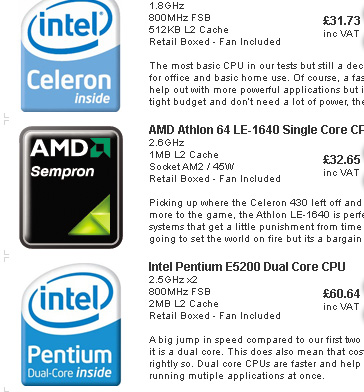
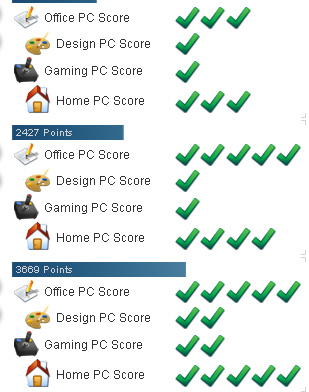



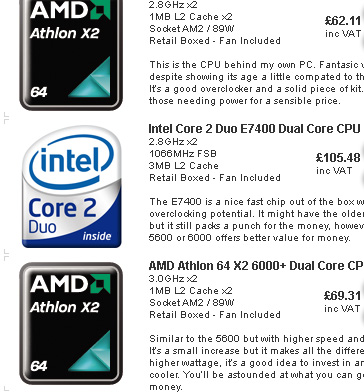
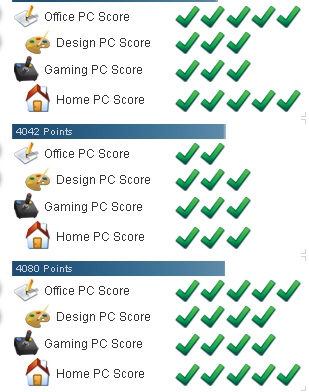



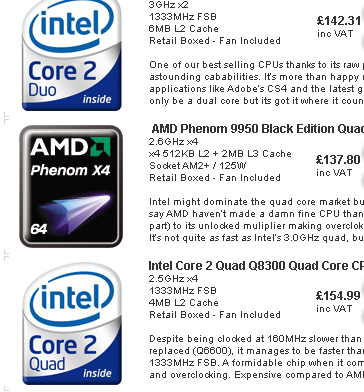
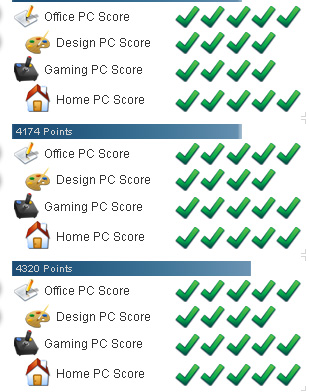



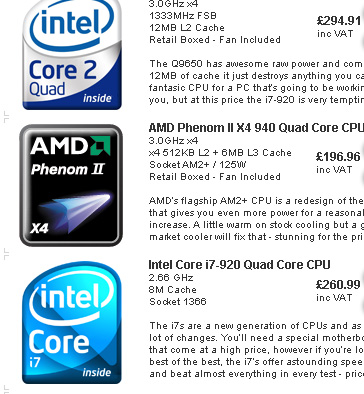
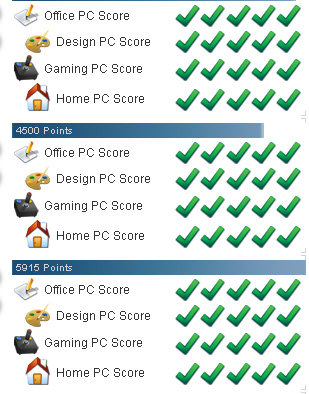



On the horizon, AMD have just launched their AM3 processors - Availability is currently limited and benchmark results are few and far between, however initial reports show great promise from this range.
Website: www.cclonline.com
Phone: 01274 471200
Email: sales@cclonline.com
Forums: forums.cclonline.com
Click here for a full list of our contact details
Content: Kaveh Khyabani, Liam O'Flynn & Stephen Simmons
Editing: Liam O'Flynn & Kaveh Khyabani
Prices are valid as of Friday 6th March 2009.
CCL Computers Ltd, Inmoor Road, Tong, West Yorkshire, BD11 2PS